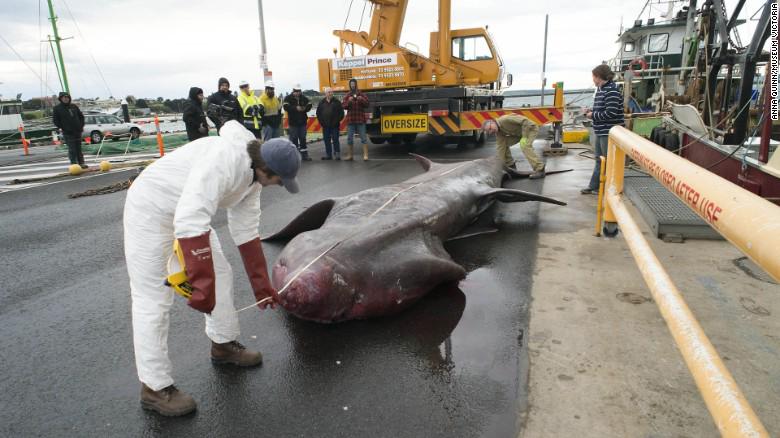
The last recorded capture of the species was in the 1930s at Lakes Entrance in the state of Victoria,
Museum
Victoria said in a statement it was only the third time a shark like
this has been seen in the region in more than 160 years.
As
the second biggest fish species in the world after the whale shark, the
basking shark got its name for its gentle, slow-moving nature and
preference for warmer waters. Adults can grow to be 12 meters long.

Scientists say the placid plankton feeders have "thin and week jaws
lined with tiny (2-mm-long) teeth," which make them rather
"un-shark-like."

No comments:
Post a Comment